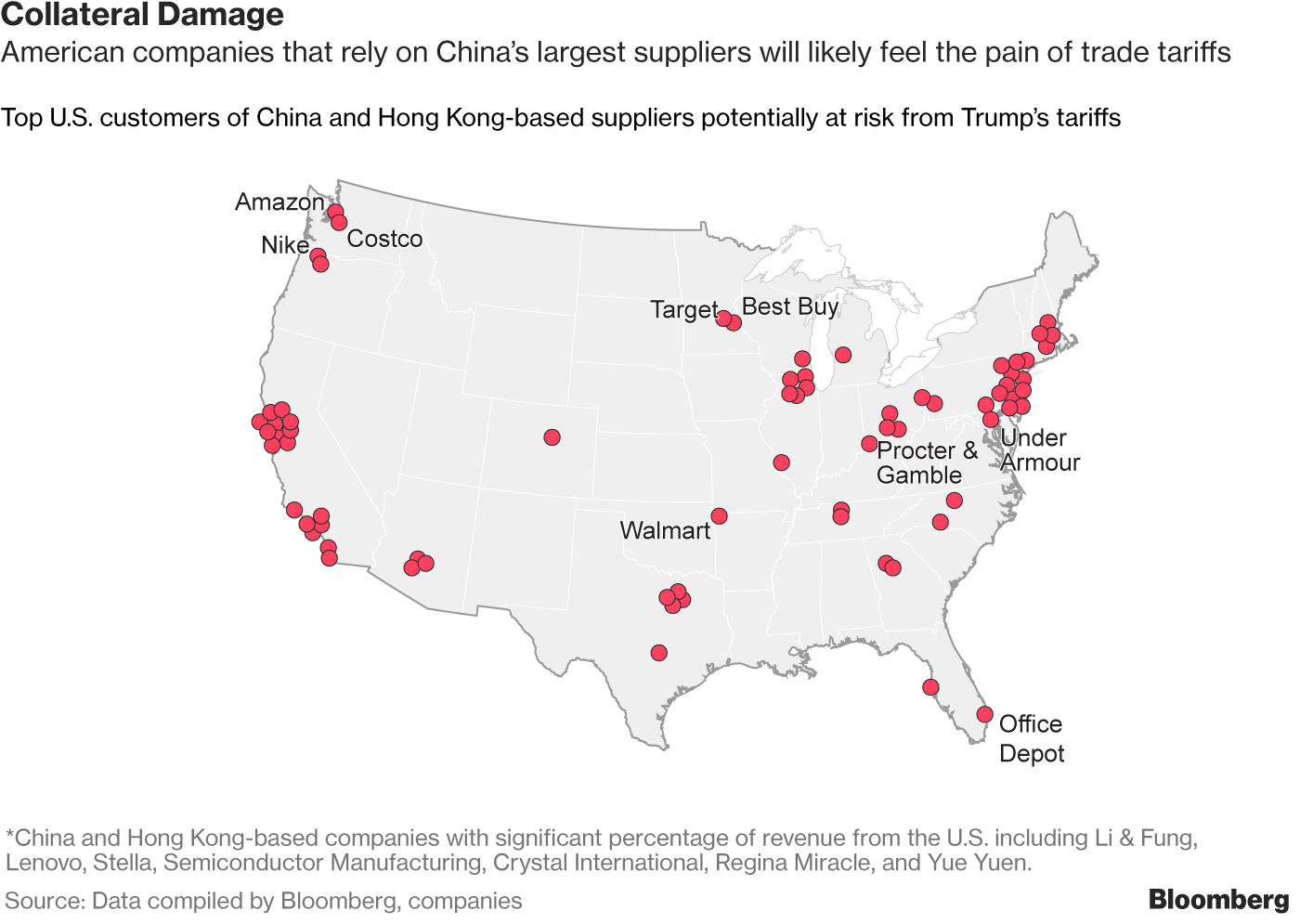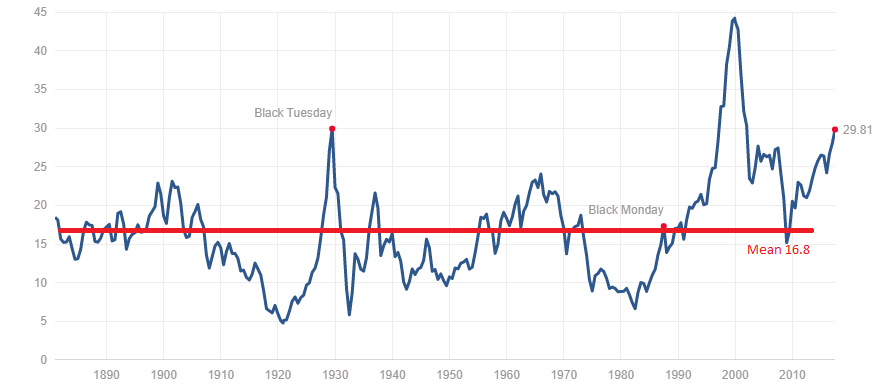Trump's Proposed 100% Tariff: Impact On International Film Production

Table of Contents
Disruption to Global Film Financing and Investment
A 100% tariff would drastically alter the financial landscape of international film production. International co-productions, a cornerstone of modern cinema, would become exponentially more expensive and complex. The increased costs associated with bringing in international crews, shooting on location overseas, or utilizing foreign talent would render many projects financially unviable.
-
Increased production costs for films involving international crews or locations: The tariff would significantly inflate the cost of importing equipment, personnel, and services from affected countries, making even small-scale international collaborations prohibitively expensive.
-
Difficulty securing funding from foreign investors: Investors from countries subject to the tariff would be far less likely to invest in US-based productions, fearing diminished returns. This could lead to a significant reduction in funding for films with international appeal.
-
Potential collapse of established international co-production partnerships: Long-standing collaborations between studios and filmmakers across national borders could be irrevocably damaged, leading to the loss of valuable expertise and creative synergy.
-
Shift in film production towards countries not affected by the tariff: Filmmakers might be forced to relocate production entirely to countries outside the scope of the tariff, leading to a potential loss of jobs and economic activity in the US.
The Impact on Post-Production and VFX
The film industry relies heavily on specialized post-production houses and visual effects (VFX) studios located around the globe. A 100% tariff would severely restrict access to these crucial services, leading to a range of negative consequences.
-
Higher costs for post-production services: The tariff would increase the cost of outsourcing post-production work, potentially exceeding the budget of many independent and even studio films.
-
Delays in film releases due to logistical challenges: The added complexity and expense of navigating tariffs would inevitably lead to delays in the post-production process and push back release dates.
-
Potential loss of specialized expertise and skills found in international studios: The tariff could incentivize studios to avoid international collaborations altogether, leading to a loss of access to unique skills and creative perspectives.
-
Increased domestic demand, potentially driving up domestic prices for these services: The sudden increase in demand for domestic post-production services could create artificial scarcity and lead to inflated prices for these services.
Challenges for Film Distribution and Exhibition
The distribution and exhibition of international films would face considerable hurdles under a 100% tariff regime. The increased costs associated with importing and exhibiting foreign films would limit their availability and impact audiences.
-
Increased costs for importing and distributing foreign films: The tariff would make it considerably more expensive to bring foreign films into US theaters, potentially leading distributors to prioritize domestic films.
-
Reduced availability of diverse international films for audiences: Audiences would likely see a decrease in the variety of films available, limiting their exposure to different cultures and cinematic styles.
-
Negative impact on cultural exchange and cinematic diversity: The reduced availability of international films would directly impact cultural exchange and diminish the diversity of cinematic storytelling.
-
Potential for protectionist measures in other countries retaliating against US films: Other countries might retaliate with similar protectionist measures, creating a cycle of trade restrictions and harming US film exports.
The Future of International Film Collaboration in a Protectionist Environment
A 100% tariff on imported goods would have far-reaching and potentially devastating consequences for international film collaboration, impacting creativity and economic benefits for years to come.
-
Reduced cross-cultural storytelling and representation: Restrictions on international collaborations would limit the scope of stories told and the diversity of perspectives represented on screen.
-
Diminished opportunities for international filmmakers to collaborate: The tariff would create significant barriers for filmmakers from different countries to work together, hindering the creation of unique and innovative films.
-
A potential "fortress mentality" in filmmaking, limiting global reach and appeal: A focus on domestic productions could lead to a less globally appealing cinema, limiting the reach and impact of American films internationally.
-
Loss of economic benefits derived from international film collaborations: The economic benefits of international co-productions, including job creation and investment, would be significantly reduced.
Conclusion: Navigating the Uncertain Future of International Film Production Under Tariffs
The potential impact of a 100% tariff on international film production is significant and multifaceted. From disrupting global financing to limiting cultural exchange and jeopardizing the future of international collaborations, the consequences are far-reaching and potentially devastating. The interconnectedness of the global film industry highlights the importance of understanding and addressing the challenges that such protectionist policies pose. The future of international film production hinges on fostering collaboration and open trade. To learn more about the impact of tariffs on international film and the challenges facing international film production, explore resources from organizations advocating for free trade and cultural exchange within the film industry. Understanding these issues is crucial for preserving the vibrancy and diversity of global cinema.

Featured Posts
-
 Thursday April 17 2025 Daily Lotto Winning Numbers
May 07, 2025
Thursday April 17 2025 Daily Lotto Winning Numbers
May 07, 2025 -
 The Future Of European Public Transport Hydrogen Vs Battery Buses
May 07, 2025
The Future Of European Public Transport Hydrogen Vs Battery Buses
May 07, 2025 -
 Princess Dianas Met Gala Gown A Risque Revelation
May 07, 2025
Princess Dianas Met Gala Gown A Risque Revelation
May 07, 2025 -
 Ssc Chsl Tier 3 Result 2025 Check Your Final Selection Status
May 07, 2025
Ssc Chsl Tier 3 Result 2025 Check Your Final Selection Status
May 07, 2025 -
 Lane Hutson Peut Il Devenir Un Defenseur Elite Dans La Lnh
May 07, 2025
Lane Hutson Peut Il Devenir Un Defenseur Elite Dans La Lnh
May 07, 2025
Latest Posts
-
 The Strategic Importance Of Middle Management In Modern Organizations
May 08, 2025
The Strategic Importance Of Middle Management In Modern Organizations
May 08, 2025 -
 Bof As Take On High Stock Market Valuations A Reason For Investor Optimism
May 08, 2025
Bof As Take On High Stock Market Valuations A Reason For Investor Optimism
May 08, 2025 -
 Exploring The Value Of Middle Management Benefits For Companies And Their Workforces
May 08, 2025
Exploring The Value Of Middle Management Benefits For Companies And Their Workforces
May 08, 2025 -
 Why Middle Managers Matter A Critical Analysis Of Their Impact On Companies And Employees
May 08, 2025
Why Middle Managers Matter A Critical Analysis Of Their Impact On Companies And Employees
May 08, 2025 -
 Why Stretched Stock Market Valuations Shouldnt Deter Investors A Bof A Analysis
May 08, 2025
Why Stretched Stock Market Valuations Shouldnt Deter Investors A Bof A Analysis
May 08, 2025
